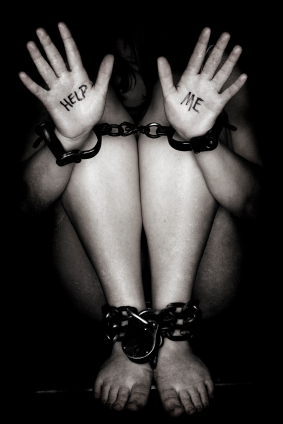
Photo on Diane Beeler website
In class yesterday, we had a good discussion on the topic of freedom. I challenged the students to think about the true meaning of freedom as we were going over the Old Testament. I pointed out that we see the plight of humankind constantly disobeying God, even though God clearly marks out the boundaries for us.
Then I imposed the question, “Can we say that we are truly free when God commands us not to do certain things in the Bible? Isn’t that restricting our freedom?” After a minute of thinking through the question, most of the students were in agreement with the worldview that says that we are not free because of restrictions placed on us.
But then, this one girl raised her hand and said, “No, we are free because true freedom is the ability to choose what is right!” I was impressed.
I proceeded to draw an illustration of the point a bit further. I asked the students to think about a drug addict, alcoholic or even a porn addict. If we were to look at them, it is easy for the world to say that they are free to do whatever they want apart from God. But if we were to ask the drug addict, alcoholic or porn addict to stop what they are doing, will they be able to? Aren’t they in bondage to those things, which inherently shows that they are not truly free?
As I continued to explain, I can tell that the students were slowly getting it. In fact, they understood that in order to understand the true nature of freedom, they needed to understand that it is counter-intuitive thought. We normally think that when there are boundaries, rules, and laws then we are lacking in freedom and that when we are able to do whatever we want to do then we are free. But it is just the opposite.
When we choose to obey freely, then we will experience true freedom.
J. M. Njoroge who is part of the Ravi Zacharias International Ministries speaking team shares some similar thoughts. He writes in a poignant and clear way regarding the true nature of freedom. Njoroge writes,
Misunderstanding the kind of freedom Christ offers leads to a distorted view of the nature of sin. Some find it hard to give a good reason why sin is prohibited by God. Don’t God’s prohibitions limit our freedom? Wouldn’t some acts, at least, be harmlessly enjoyable if God, for some curious reason, did not brand them ‘sin?’ The answer to both questions is no, and the reason is that sin is a serious defect in humanity, not a virtue. It will eventually turn those who relentlessly cling to it into grotesque distortions of God’s original intent for them. Anything that impedes our progress towards our true identity and calling diverts us from our journey to freedom, even when no one else finds out.
That is why it is not quite true to tell people that knowing the truth will set them free. That phrase is part of a very instructive discipleship statement in John 8:31-32 which reads, ‘To the Jews who had believed him, Jesus said, ‘If you hold to my teaching, you are really my disciples. Then you will know the truth, and the truth will set you free.’ Did you notice the conditional nature of the freedom proclaimed here? Only by holding to the teaching of Christ in the context of purposeful discipleship can true freedom be found. James 1:25 tells us that practicing God’s perfect law gives us freedom. Without a clear understanding of our call to freedom in Christ, our thirst for righteousness and passion for the lost will be seriously hindered, for we will secretly think that the requirements of righteousness are really deprivations.”
Maybe instead of asking, “Are we free?” maybe we need to ask, “Are we obeying God?” Obedience to God’s will indeed brings tremendous freedom in our lives.



